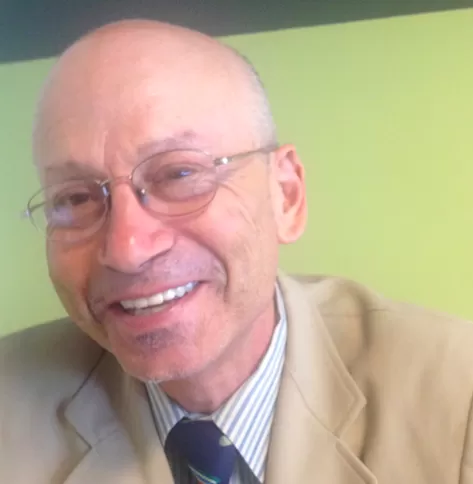Irvin Dawid discovered Planetizen when a classmate in an urban planning lab at San Jose State University shared it with him in 2003. When he left San Jose State that year, he took with him an interest in Planetizen, if not the master's degree in urban & regional planning.
As a long-time environmental activist, he formed the Sustainable Land Use committee for his local Sierra Club chapter and served six years on the Bay Area Air Quality Management District’s Advisory Council from 2002-2008. He maintains his interest in air quality by representing Sierra Club California on the Clean Air Dialogue, a working group of the Calif. Environmental Dialog representing business, regulatory and public health/environmental interests.
Major interests include transportation funding, e.g., gas taxes, vehicle miles traveled (VMT) fees, road tolls and energy subsidies that lead to unlevel playing fields for more sustainable choices.
He hails from Queens (Bayside) and Long Island (Great Neck); received an AAS in Fisheries & Wildlife Technology from SUNY Cobleskill and a B.S. from what is now Excelsior College.
After residing for three years on California’s North Coast, he’s lived on the San Francisco Peninsula since 1983, including 24 years in Palo Alto. Home is now near downtown Burlingame, a short bike-ride to the Caltrain station.
He’s been car-free since driving his 1972 Dodge Tradesman maxi-van, his means to exit Long Island in 1979, to the junkyard in 1988.
Major forms of transportation: A 1991 'citybike' and monthly Caltrain pass, zone 2-2. "It's no LIRR, but it may be the most bike friendly train in America."
Irvin can be reached at [email protected]
Assessing the Impacts of Shifting From Coal to Natural Gas
In a 2-part series, NPR reports on the rapid downfall of coal as an energy source and its replacement by natural gas - each now produces about one-third of America's electricity. Fracking is key to increased NG supplies - but it carries its own risks
Amtrak's $151 Billion High Speed Rail Plan
With the CA state Senate's appropriation of $8 billion toward their $68 billion high speed rail plan, the spotlight turns to the other coast - the Northeast Corridor, with Amtrak's unveiling its updated, $151 billion plan. Both run 220 mph trains.
Legal Obstacles For CA's HSR Clear Up....Slightly
With $8 billion almost in hand (the $4.5 billion in state bonds still need to be sold), the most formidable immediate hurdles are dealing with five lawsuits facing the High Speed Rail Authority. Mike Rosenberg reports that progress has been made.
Now That It's Funded, is CA HSR Unstoppable?
TIME's senior national correspondent posits that once the first shovel begins digging int the Central Valley, the $68 billion project will be hard to stop, regardless of the fact that no federal funding awaits as long as the GOP controls the House.
CA Rail: Funded But With Nowhere To Go?
After a much heralded vote on July 6 in the state Senate, the embattled CA high-speed rail project is now eligible to receive $7.9 billion in state and federal funds, but formidable obstacles remain, not the least of which is finding $60 billion.

























